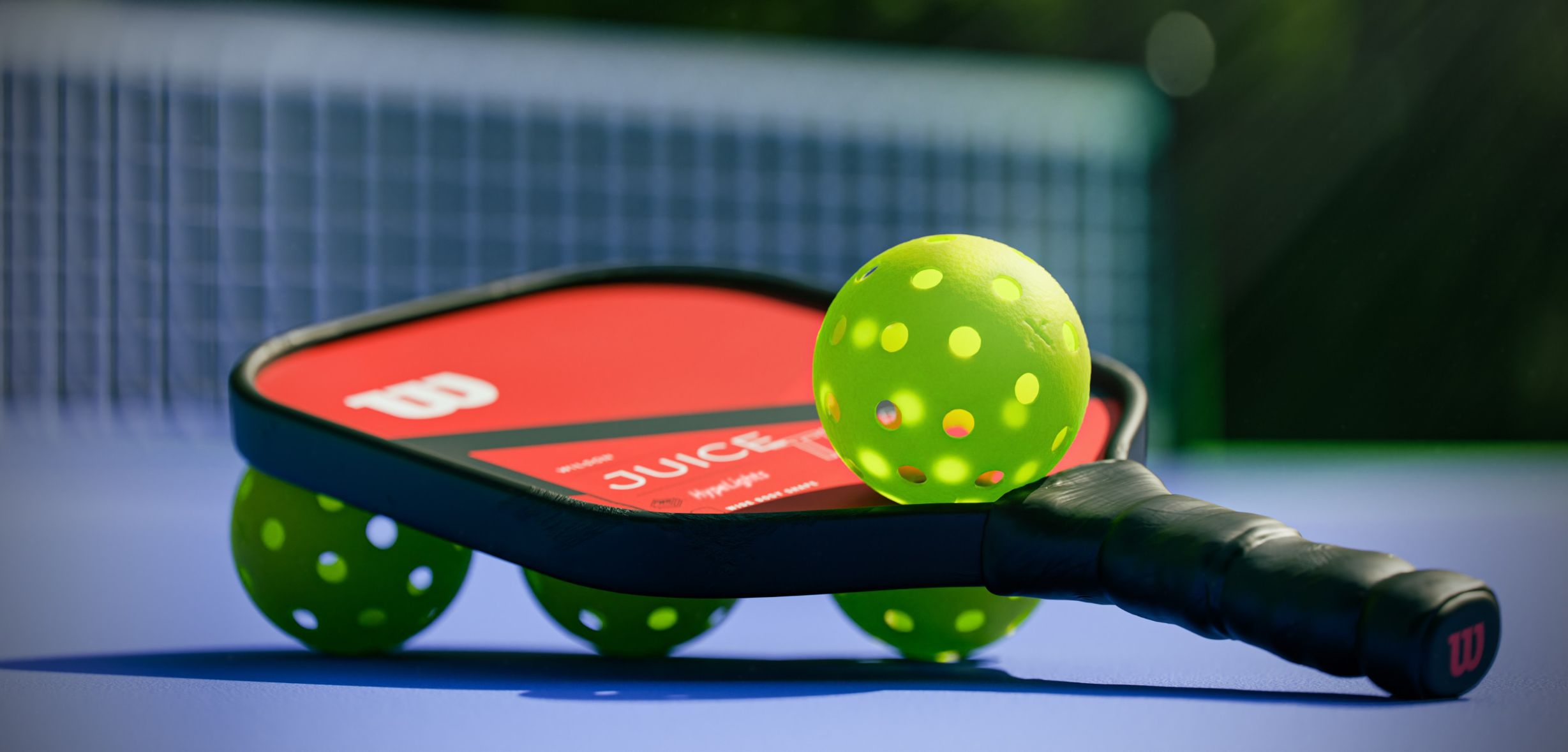The increasingly popular sport – which notably does not involve the use of pickles – is an easy and accessible way for just about anyone to get more exercise, have fun, and make new social connections!
Pickleball, a paddle sport that combines elements of tennis, badminton, and table tennis, was invented in 1965 on Bainbridge Island in the US state of Washington. Its creation is attributed to three fathers – Joel Pritchard, Bill Bell, and Barney McCallum – who aimed to entertain their children with a new game. They improvised with ping-pong paddles, a perforated plastic ball, and a badminton net.
Pickleball today is played on a badminton-sized court with a low net, and it uses a perforated plastic ball and paddles that are larger than ping-pong paddles but smaller than tennis racquets. The game can be played in singles or doubles format. The objective is to hit the ball over the net and into the opponent’s court without allowing it to bounce more than once on your side. Key gameplay features include a non-volley zone close to the net called the ‘kitchen,’ where players cannot hit the ball unless it bounces, promoting strategic play. The game begins with an underhand serve, and points are scored by the serving side only.
Due to its compact court size and slower-moving ball, pickleball is widely accessible to players of varying ages and skill levels, offering both a fun recreational and social activity and a competitive sport.
Over the past decade, pickleball has experienced a meteoric rise in popularity, especially in the United States, where it is now the country’s fastest-growing sport. Its appeal lies in its approachability, low cost, and the ease with which people of all ages and skill levels can pick up the game. From casual backyard games to highly competitive tournaments, pickleball has captured the hearts of millions globally. This surge in popularity has extended to Asia, including Malaysia, where local enthusiasts are embracing the sport.
Of course, many people wonder about the origins of the sport’s unusual name. In fact, the origin of the name ‘pickleball’ is often debated, with two popular explanations circulating. The first, and perhaps the most widely known theory, is that the game was named after the family dog, Pickles, who would chase after the ball and run off with it. Joel Pritchard, one of the sport’s inventors, had a dog named Pickles, and it is said that the dog would often interrupt their play by grabbing the ball.
Another explanation, which Pritchard’s wife Joan has supported, is that the name comes from the term ‘pickle boat.’ In rowing, the pickle boat is the last boat to return with its catch, made up of leftover rowers from other boats. This theory suggests that since pickleball was thrown together using bits and pieces of other sports (badminton, tennis, and table tennis), it was similar to a pickle boat.
We think both of these stories add to the charm and humour of the pickleball moniker, contributing to its unique nature overall!
We recently chatted with husband-and-wife pickleball enthusiasts and coaches Andrew Martin and Melina Hwang, getting their insights into the sport and their involvement with it, how it’s taken off in Malaysia, and how others can join in the fun.
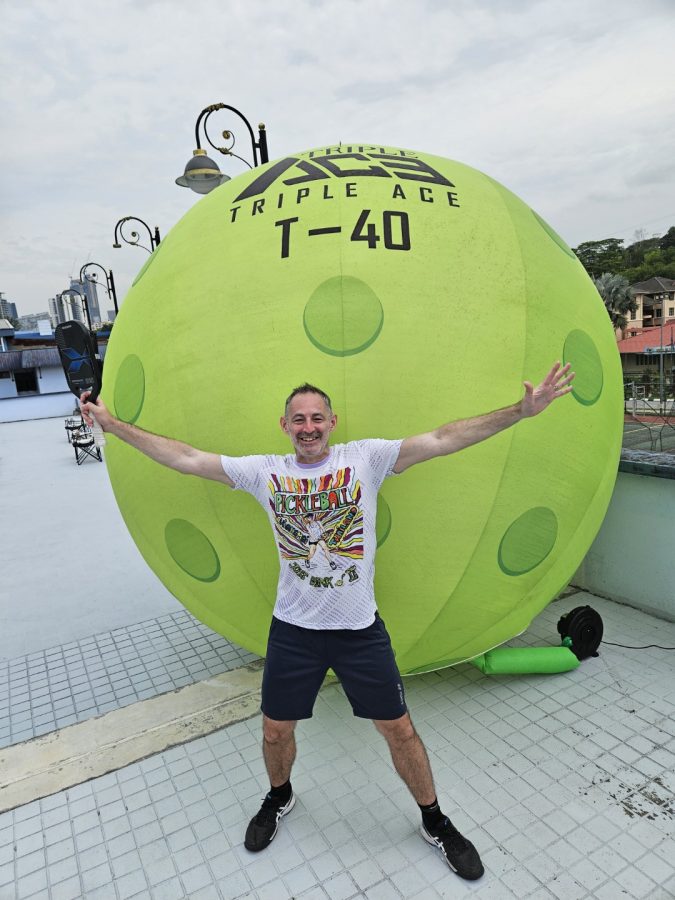
Hi, guys! Can each of you tell us a little about your background and status with pickleball?
Andrew: I am originally from the UK and have been living in Asia, predominantly Malaysia, for over 10 years. I’ve been playing pickleball for about a year and am qualified as an IPTPA Level I coach. However, I would say that I focus more on playing and participating in tournaments rather than coaching.
Melina: I was born and raised in Malaysia. I started playing pickleball a few months before Andrew. I am a Level II IPTPA coach and was, until recently, the resident coach at the ESM Pickters Pickleball Arena on the UM campus. I host several open play pickleball sessions every week.
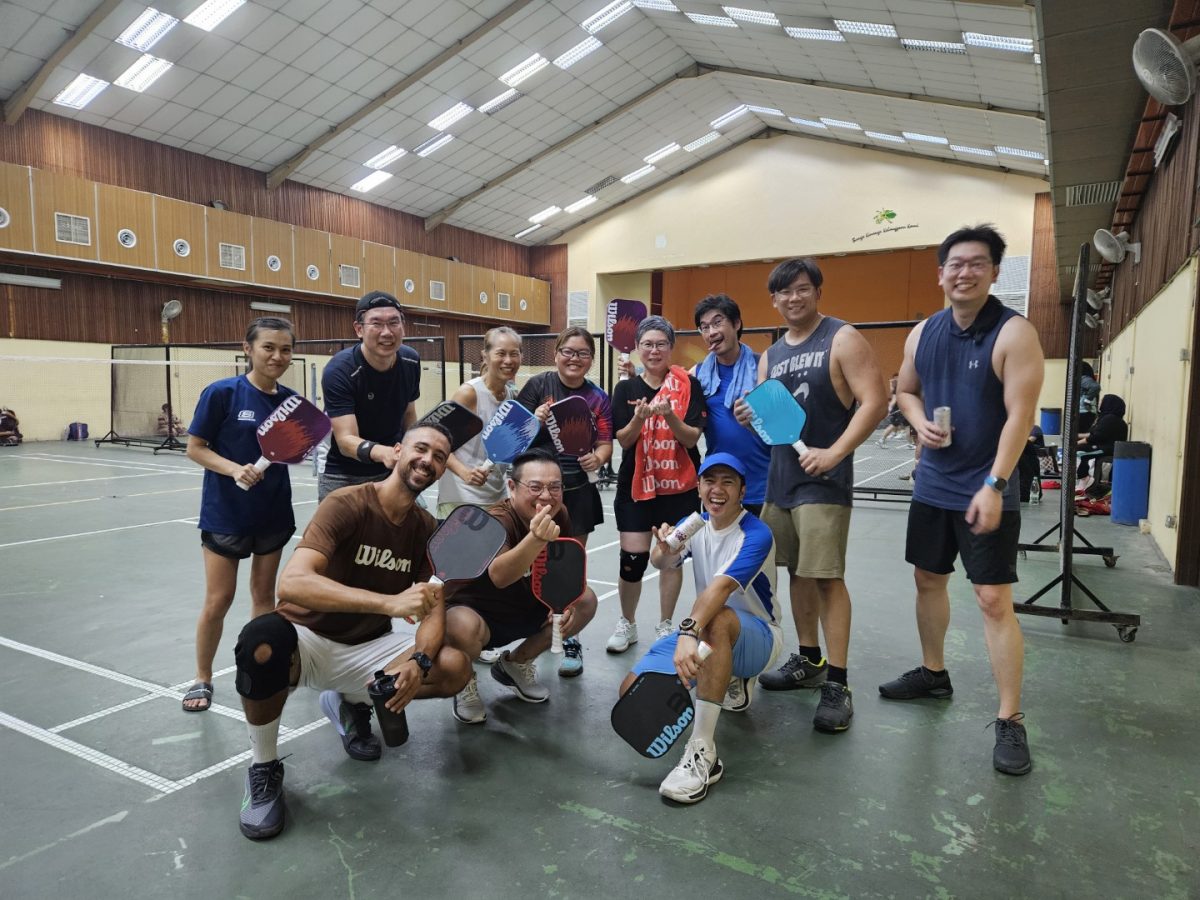
How did you get started with the sport?
Andrew: Both of us used to play tennis two or three times a week. However, I fell ill, which prevented me from playing. During that time, Melina also stopped playing. Eventually, she got the itch to get back on the courts and contacted one of her tennis friends, who said, “I am not playing much tennis at the moment; I am playing pickleball.” Neither of us had any idea what pickleball was, but Melina decided to try it out. One session later, she was hooked. I watched a few times, but couldn’t understand the addiction until I was well enough to try it myself. The rest, as they say, is history.
Why do you think pickleball has become so popular in recent years?
Melina: Although it’s been around for more than 50 years, pinpointing why it suddenly exploded globally is challenging. We know people in Singapore who have been playing for over 20 years, but participation was quite niche until recently. In the United States, it gained popularity during Covid-19 as team sports were off-limits. Pickleball allowed people to stay active while still maintaining social distance. Its low barrier to entry and the fact that families, from grandparents to grandchildren, can play competitive games together likely contributed to its rapid growth. It’s now the fastest-growing sport in the US, and even China has plans to build 100,000 courts nationwide.
Would you say it’s been well-received in Malaysia?
Andrew: Definitely. When we first started, the reaction was “pickle what?” Now, nearly everyone knows the sport, or they’ve at least heard of it. We’ve seen many tennis and squash players, and now even badminton players, transitioning to pickleball. While most players are currently 19 years and older, there are growing efforts to introduce it in schools. Malaysia is a bit behind compared to other Southeast Asian countries, where participation is broader.
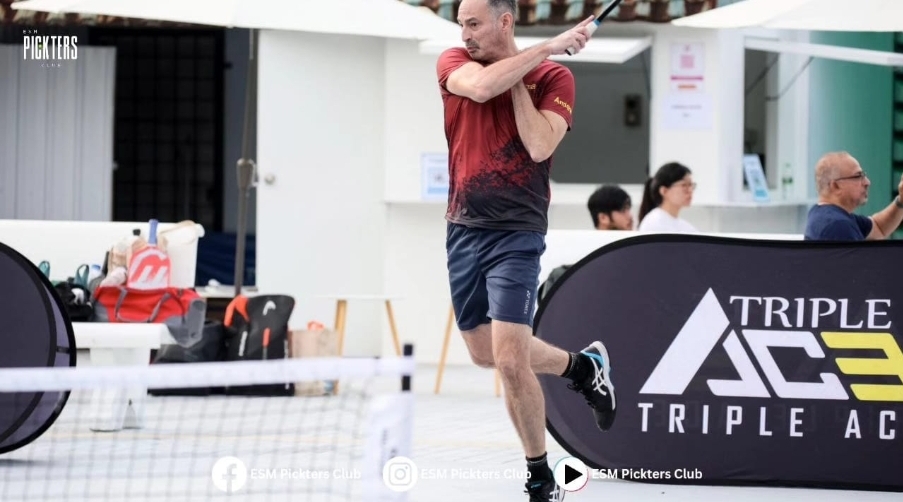
Can you tell us about local clubs, leagues, or casual groups who play pickleball?
Melina: There’s a lot happening! The first two dedicated pickleball centres in KL were ESM on the UM campus near Bangsar and Pickle Social Club at KLGCC, both organising regular tournaments. There are clubs and unofficial groups running open sessions weekly, not just in KL but also in Malacca, Penang, Ipoh, and Johor. New leagues are forming, and more dedicated pickleball centres are opening across KL. Many groups welcome beginners, offering free coaching and lending paddles.
How physically fit do players need to be? Is this a good way to get more exercise into a weekly routine?
Andrew: Despite the small court size, pickleball is physically demanding, requiring good cardio. It’s popular among older players because it puts less strain on joints compared to other racket sports. Many who struggle with knee or elbow injuries from tennis or squash find pickleball less taxing. If you’re not physically fit, you might struggle at first, but beginners’ groups make it an excellent way to get fit.
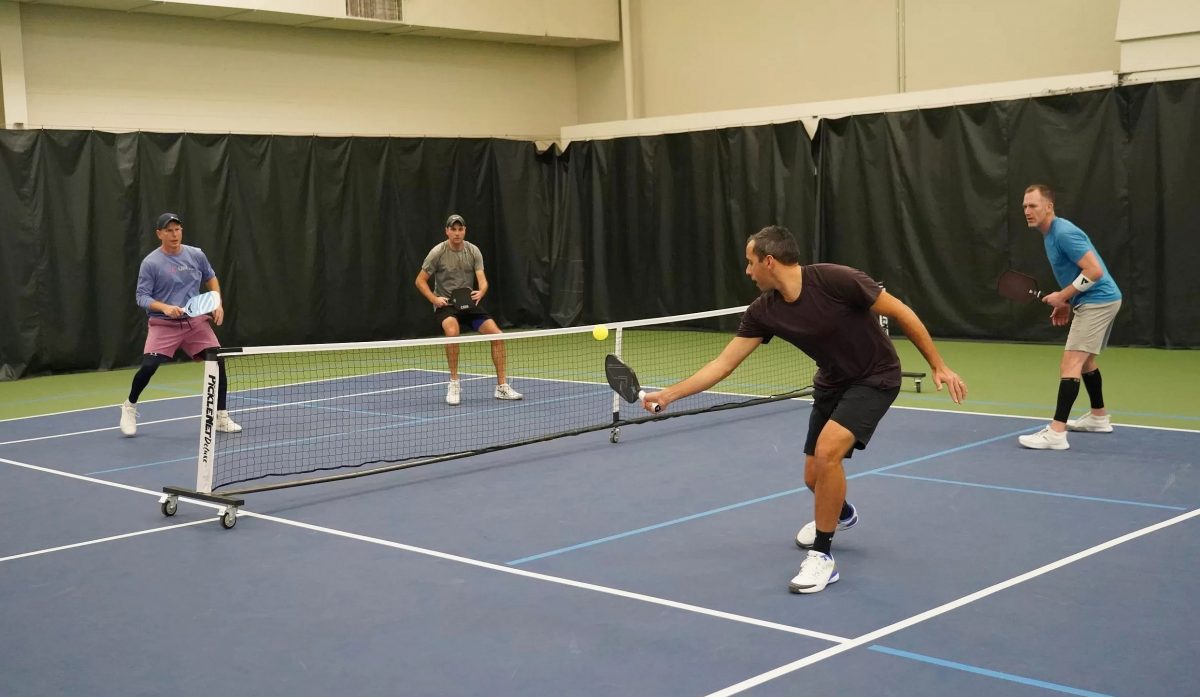
What do you find most enjoyable about pickleball?
Melina: The strategy involved is fascinating, with points often won by thinking several shots ahead. The game shifts from slow, controlled play to frantic volley battles, making it addictive. It’s also very social. Large groups of 20 or more move in and out of games rapidly, so in a two-hour session, you might play with 20 different people. After games, players often socialise over meals, and during tournaments in places like Phuket or Bali, they meet up for drinks or food.
For readers interested in learning more, how should they proceed?
Andrew: The best way is to download an app called Reclub and join the pickleball groups there. Klang Valley Pickleball has nearly 2,000 members, and other Malaysian clubs include Life Journey Pickleball near Ampang, Subang Jaya Pickleball, and Ipoh Big Pickleball. These groups post social and open sessions daily, and you can find coaches offering lessons. Just request to join a session and turn up. If you don’t have a paddle, message the session host to see if they accept newbies and can lend you one to get started. But if you find that you get hooked on the sport, don’t say we didn’t warn you!
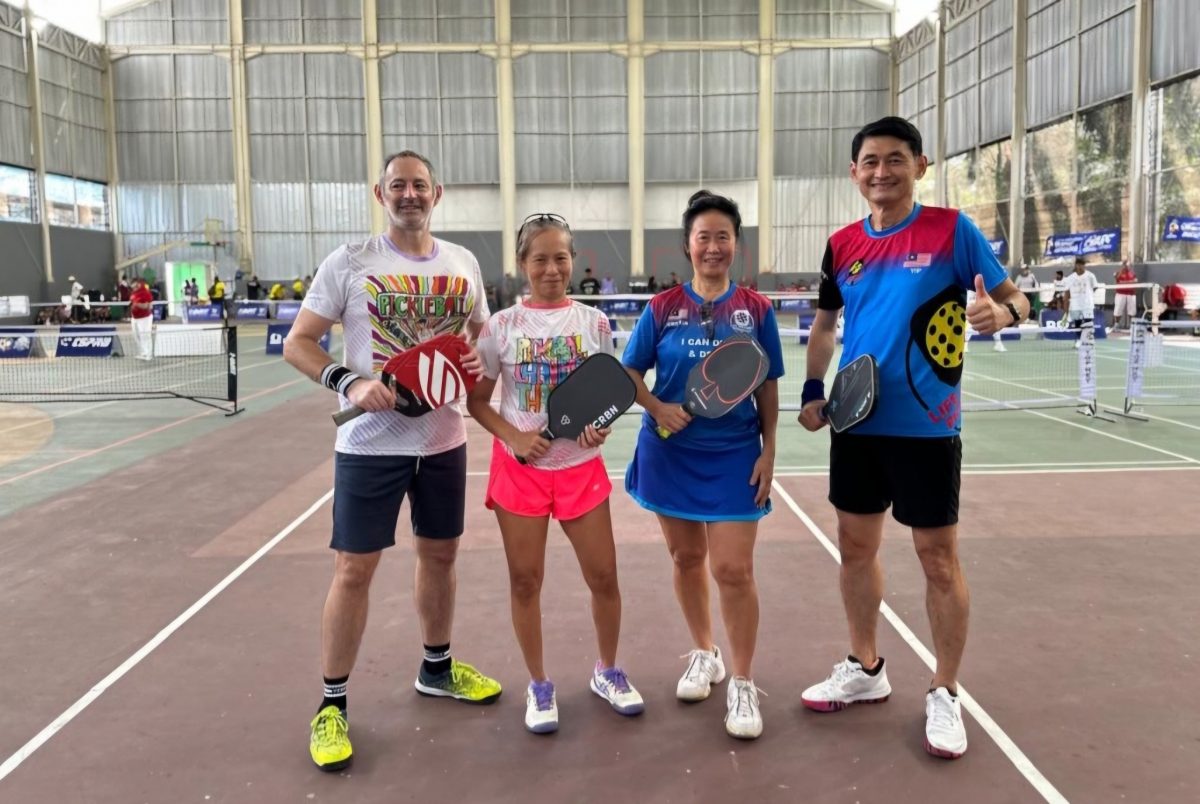
"ExpatGo welcomes and encourages comments, input, and divergent opinions. However, we kindly request that you use suitable language in your comments, and refrain from any sort of personal attack, hate speech, or disparaging rhetoric. Comments not in line with this are subject to removal from the site. "


